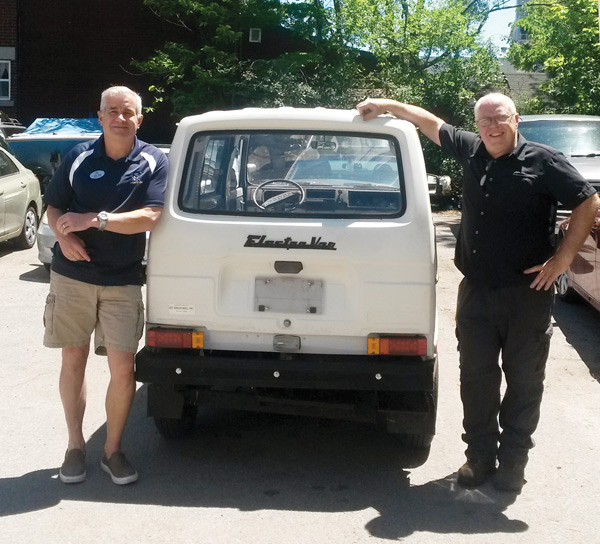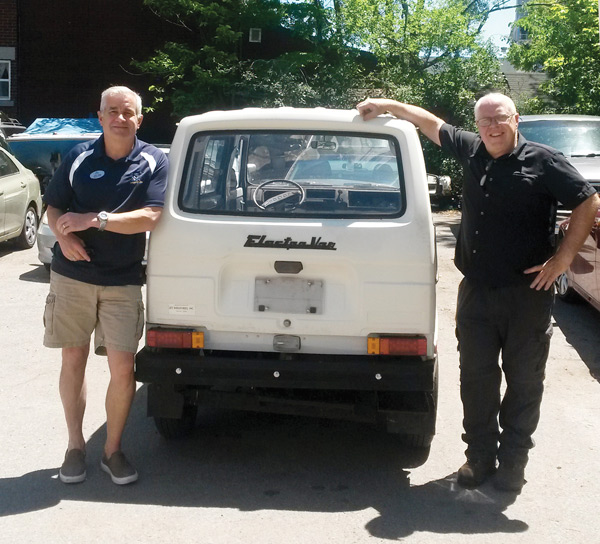By Bradley Turcotte –
Dovercourt Recreation Association (DRA) aims to add a jolt of electricity to their community events this summer once Gifford Automotive completes work on a 1979 mini electric van.
Built by Subaru in 1979, the little vehicle was sold as a non-engine body to Jet Industries in Austin, Texas. From there, the van climbed further up the hipster ladder, buzzing all the way to Portland, Oregon in 1981 where it served as a municipal van.
Acquired by Gifford Automotive in 2007, the McRae Avenue business hoped – with time and money – the van would become an eye-catching promotional vehicle for the garage.
On a routine service visit to Gifford Automotive, DRA executive director John Rapp spotted the unique machine on the lot and it sparked his interest.
After years of casual negotiations, John says the-little-van-that-could will be DRA’s signature charitable chariot, deploying staff and materials to the association’s events around Kitchissippi.
“The fact that it’s electric and highly efficient in Westboro, the home of tree-hugging… Birkenstock-wearing, ecologically friendly people… what a great opportunity to get a fully electric vehicle to do this short-haul work,” says John.
Gifford associate Dave Brunskill estimates he has clocked 100 hours of work on the van and says updating the battery system remains the largest challenge.
“The problem is the battery technology that we’re using and how we’re using it is a little tricky. We’re having to be clever,” Dave divulges.

Prices for battery systems can be shocking, Gifford Automotive’s Carl Chaboyer observes, citing systems used by Tesla, which run up to $40,000 each. Electric vehicles sold independently online come with “just needs batteries” taglines but these declarations are deceptive, Carl continues, as there are many variations of this particular technology.
The Gifford team decided to move away from the old and dangerous flooded cell technology, opting for a “smaller and slightly different lead-acid chemistry” making the van safer and more efficient.
“The original battery technology was substantially heavier. It comprised over 50 per cent of the overall weight of the vehicle… We were hoping to eliminate some of these problems and improve things but we never really solved the charging issue,” says Carl, who first became fascinated with renewable energy while studying mechanical engineering at Lakehead University.
“I see a 35-year-old electric vehicle that’s still viable today as being something that’s extremely interesting. It had limitations 35 years ago, but it’s still a viable technology.”
John says the self-contained system will be charged at Dovercourt and that it can be plugged in anywhere. Further upgrades to the van include modifications to the motor, brakes and clutch in addition to relocating the bulk of the high voltage electrical circuitry.
The estimated cost for work on the mini van is $10,000. Farm Boy pledges to sponsor the project and John encourages anyone else who would like to support the vintage vehicle to contact his office.
“Usually, with recreation, you come to that place and you do what you are going to do … you go to a facility,” John says. “In our case we go out to animate.”
The revitalized wagon should be ready to power DRA’s events by the end of August.
